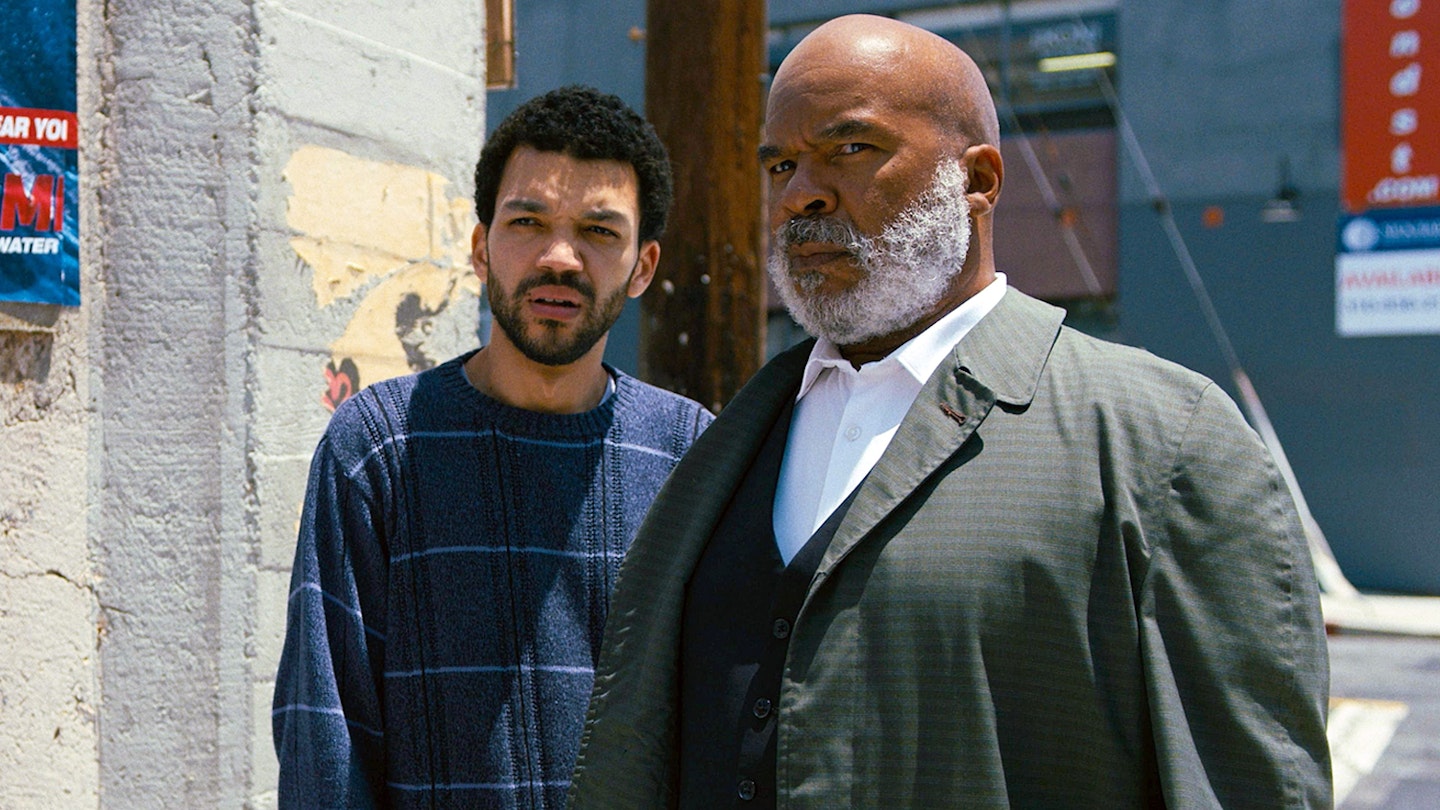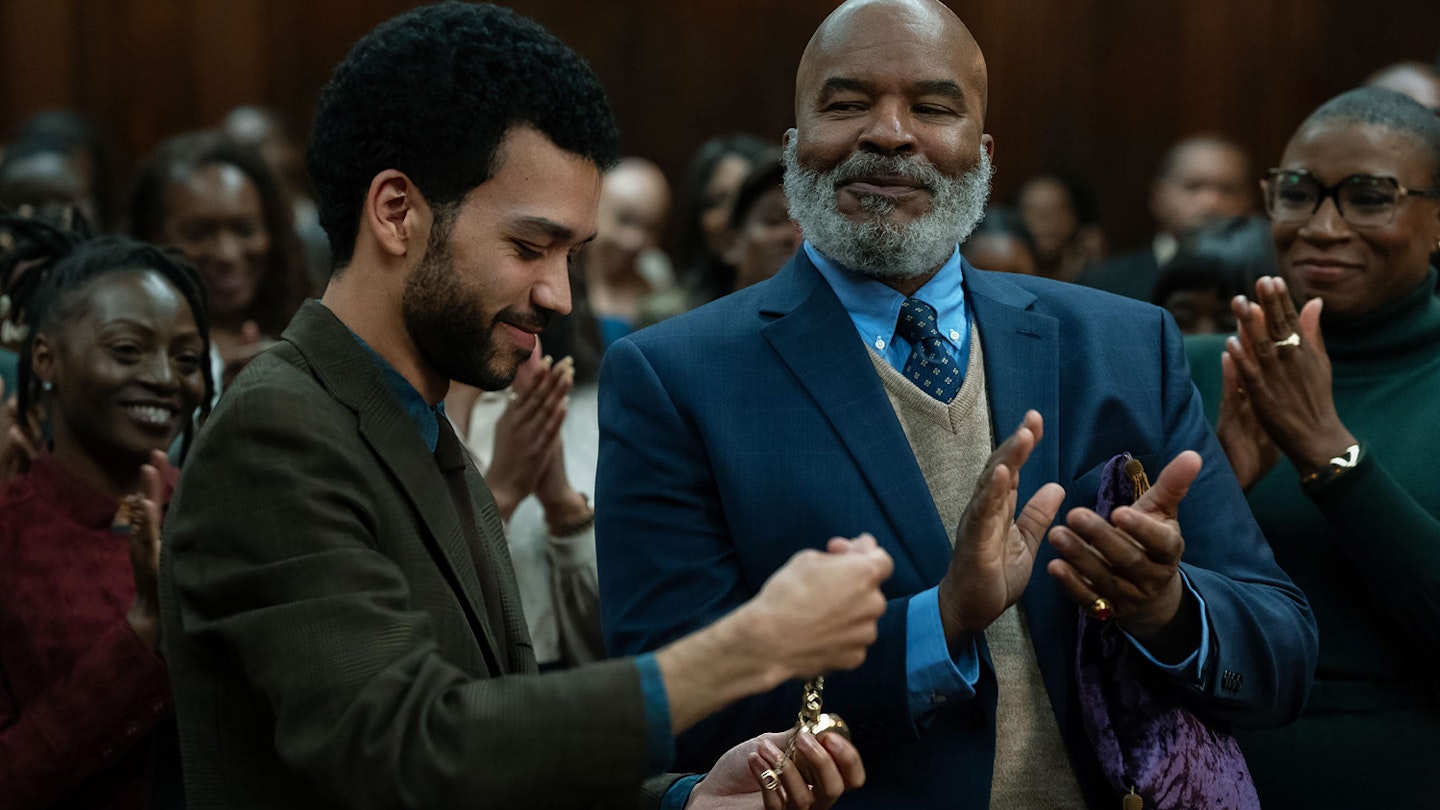Despite a provocative title, The American Society Of Magical Negroes’ worst offence is that it’s dull. There’s a kernel of a fun idea here — almost Key & Peele-esque in its specific parody, taken to a surreal extreme — but it’s uncomfortably dragged out over the course of an interminable feature plot. The society itself is presented in a fragmented manner, popping in and out of the story to the point where it actually feels like a distraction rather than, well, the central premise of the film.

Written and directed by Kobi Libii, the film focuses on protagonist Aren (Justice Smith, the single thread holding this together), a struggling artist surrounded by white people who don’t understand his work — or pay attention to him at all, really. Smith plays up Aren’s meek demeanour, and through him the film builds itself around the social expectations that white people should be placated, not confronted. The eponymous American Society Of Magical Negroes is a send-up of this, referencing the movie trope of the sage Black character there to relieve their new white friend of their emotional burden.
Its genuinely weird concept feels like the volume has been turned all the way down.
It all comes across as lethargic, the magical element itself vaguely imagined, its genuinely weird concept feeling like the volume has been turned all the way down. Why is it that the “magical” part of the title feels so superfluous, when it’s so key to the joke? So much of Libii’s film drags up the question of why these decisions are being made. It’s a satire where the point is illustrated in monologue, it’s neither silly enough nor scathing enough, and the jokes that actually land can be counted on a single hand.
Libii’s visual direction is, sadly, equally inert; there’s simply no energy (nor good timing) in any of its physical comedy, leaving Justice Smith to carry so much of this in his incredulous reactions and flustered awkwardness. It’s a miracle that the actor comes out of this mostly unscathed, as though existing in the eye of a storm of poorly executed ideas. He makes what little character he’s given work through sheer force of will, even in a strange mid-film pivot into a mumblecore-flavoured romantic comedy, sincerely indulgent in cliché before revealing its point too late to make any meaningful impact. It’s the story of the whole film, unfortunately, which all feels like too little, maybe a decade too late for its main talking-point to stand out among many more thoughtful social satires by and about Black creatives.
